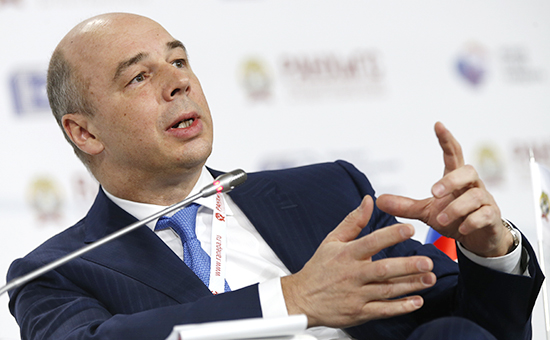
Photo: TASS
«The current budget was formed under conditions that differ from those of today, and the government has already taken the first steps to bring it into line with economic realities, – says Siluanov. – We can not afford the costs, calculated at a price of $ 100 per barrel. Therefore, we reduced the amount to be communicated to the budgetary obligations of ministries and departments 10%. This means that they have to cut spending by that amount, prioritize expenditure. Due to this measure saved about 1 trillion rubles. ».
But, he said, from the reduction of oil and gas revenues budget did flushes more than 3 trillion rubles. “What should I do in this situation? It is understood that this year we can not prevent a sharp budget cuts. To do this, at least need to carry out preparatory work. But on a number of costs, we can either opt out or decide to transfer them to last longer. Such a task is: the fall of the economy on the order of 4%, the budget expenditures grow by 11.7% in nominal terms, but we can not afford to increase no more than 5%. The President set a task to do to cut costs by 5% in real terms. Here it needs to be addressed, “- said the minister.
While this is not done, we can afford to increase the budget deficit:” I admit that this year’s budget deficit will be higher than projected, probably not more than 3% “- believes Siluanov.
During 2015, in addition to the 10 per cent reduction is necessary to further assess the reasonableness of costs for a variety of positions, in order to identify costs that can be deferred to a later date. “Plan-max – already in 2016 to implement a number of structural reforms, drawing attention to military spending and transfers to non-budgetary funds, especially in the Pension Fund. Part of the social costs and expenditures on the power unit can be redistributed to articles that give effect to the economy and to build human capital (education and health), “- says Minister.
To do this, in 2015, to take decisions on pension reform, the provision of social services by clicking on the declarative principle of the latter. “Plus decide that we should not strive for indexation of wages to inflation, so as not to fall into the trap. Otherwise, the Reserve Fund will be proest a half or two years “- warns Siluanov.
« In addition, our task – to reduce the cost of borrowing for businesses. To do this, in fact, necessary structural reforms. We have already talked about the need for them, but now the situation is such that we can not put them on then “- categorical Finance Minister.
In 2013, the government began a new phase of pension reform in Russia, aimed at optimizing costs of the pension system. The amendments entered into force on 1 January 2015. The main innovation – the pension formula but based on a points system based on the age of retirement and seniority. Part of the formula also became a factor which may be reviewed annually by the government.
Such changes criticized by many leading economists, including the head of the Economic Expert Group Evsey Gurvich and ex-Finance Minister, Chairman of the Civil Initiatives Alexei Kudrin. According to him, in particular, the new pension reform leads to the fact that all citizens of the accumulated coefficients depend only on the current budget revenues and thus transfers to the Pension Fund.
At the same time the authorities have limited the percentage funded part of pension younger citizens born in 1967, and then completely entered the pension freeze, implying the transfer of funds from the funded part of 2014 in the distribution system. Last year the government extended the moratorium and 2015.
Kudrin has consistently advocated raising the retirement age, indicating that only this measure, along with some other can balance the system, but also the Prime Minister and the President has consistently oppose. However, the new formula, which includes financial incentives to later exit citizens to retire, has called hidden increase in the retirement age.
No comments:
Post a Comment